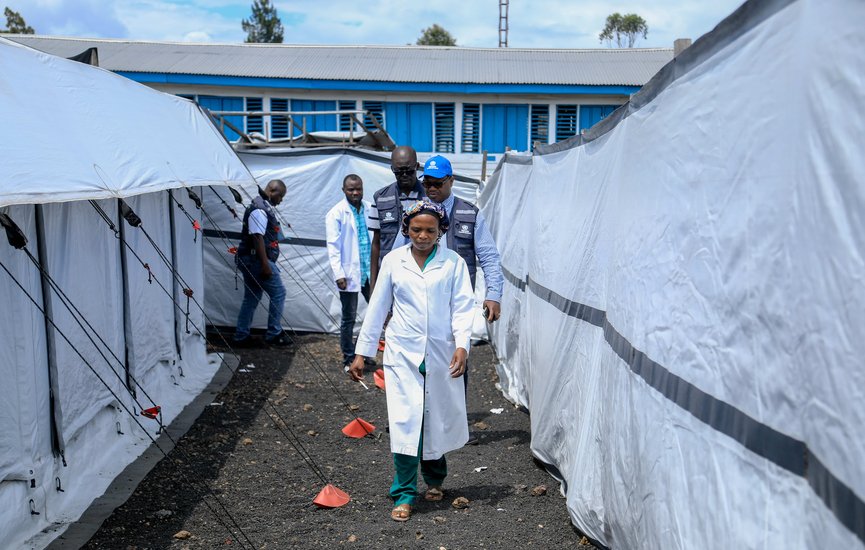By Hassan Ssenyonga | July 16, 2025
The Democratic Republic of Congo is facing a fast-growing health crisis as a cholera outbreak sweeps through 17 provinces, infecting over 33,000 people and overwhelming medical facilities already strained by a resurgence of mpox and an ongoing health workers’ strike. With rising fatalities, poor sanitation, and mass displacement fueling the spread, officials warn the situation could soon spiral into a full-scale humanitarian emergency.
“This is no longer a localized issue. We are dealing with a nationwide emergency, ”The outbreak is active and growing, especially in densely populated areas.”
said Dr. Roger Kamba, the Minister of Health.
Urban Overcrowding and Poor Sanitation Fuel Spread
Much of the surge is linked to poor sanitation infrastructure and flooding in low-income communities. Overflowing drainage channels, uncollected waste, and contaminated water sources are common across affected cities.
“In some neighborhoods, people have no access to clean water for days,” noted Dr. Claudine Mbombo, a public health specialist based in Kinshasa. “It’s a recipe for a disaster like cholera.”
In some urban zones, cholera fatality rates have jumped to 9%, far above the global emergency threshold of 1%.
Healthcare Workers on Strike Amid Crisis
Efforts to manage the outbreak are being hampered by an ongoing nationwide strike by healthcare workers, who are protesting late salaries and poor working conditions.
Several major hospitals in eastern DRC are reportedly operating at minimal capacity, leaving patients with little to no access to treatment.
“Our hospitals are understaffed. We don’t have protective gear, and some of us haven’t been paid for months,” “We want to help, but we need support too.”
said Jean-Marie Kasereka, a nurse in Bukavu.


Border Controls and Treatment Centers Launched
In response, the government has opened emergency cholera treatment centers in Kinshasa and other urban areas, offering free care and setting up isolation wards to contain transmission.
“Every patient is treated without cost, but we need more supplies and staff,” said Marie-Louise Beya, a coordinator at one of the new treatment centers in Kinshasa’s Limete commune.
The DRC has also stepped-up border surveillance, especially at crossings shared with Uganda, Rwanda, and the Central African Republic, where cholera cases have also been reported.
A Call for Urgency and Coordination
As the DRC faces the twin threats of cholera and mpox, public health experts warn that the situation could spiral further without urgent, coordinated intervention.
“This is a test of both national leadership and global solidarity,” said Dr. Ilunga. “Lives are at stake, and delay is not an option.”
